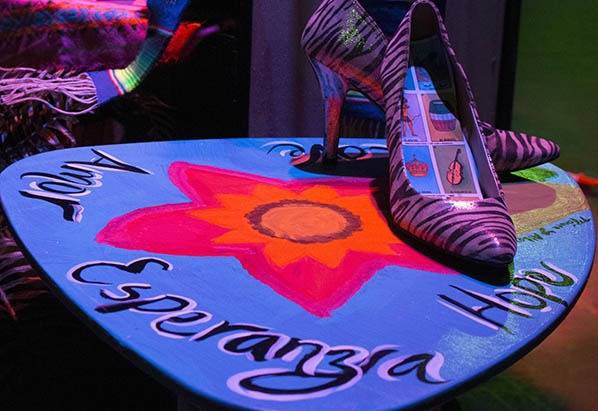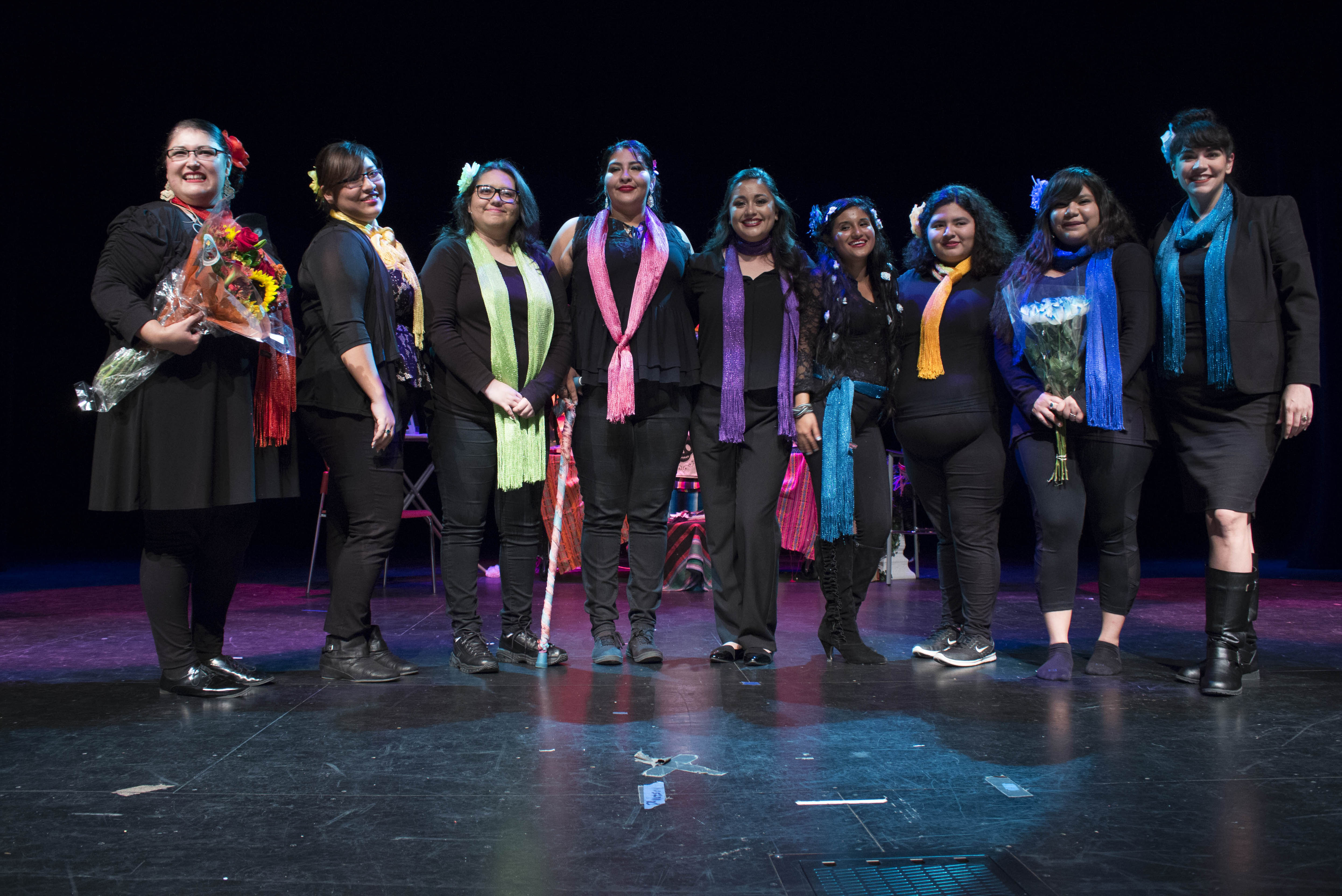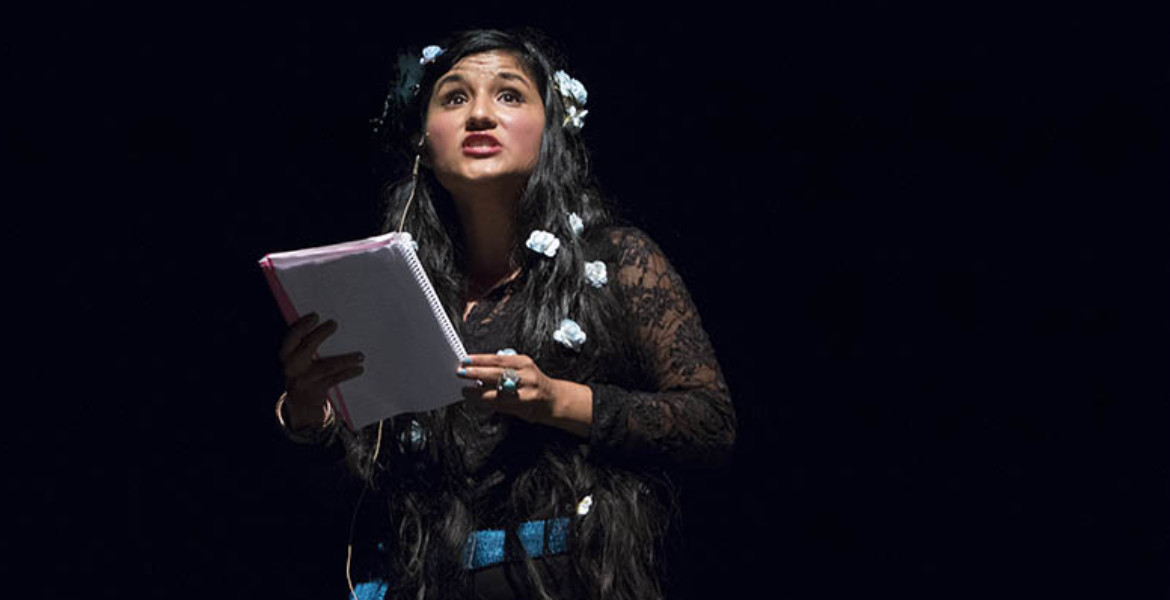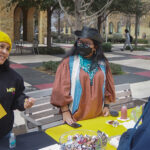Sulema Carreon Hernandez walked center stage with a cane in her hand; she sat on a chair with a pair of zebra-print high heels with Loteria cards as the soles on a table next to her. Not a line was dropped as she recited her monologue; her first time on stage.
On the evening of Oct. 13, eight current and former students performed The Panza Monologues at the Texas A&M University-San Antonio auditorium directed by Dr. Adrianna M. Santos, English assistant professor at A&M-San Antonio.
The performance addressed issues not commonly talked about in public such as body image, poverty and abuse. The women who performed were able to identify with their culture through the stories of many women in San Antonio history.

For Hernandez, sociology major, being on stage for the first time helped her confidence grow.
“I have a disability with my foot so this play has really inspired me to accept who I am,” she said. “I am not afraid to shine. It basically taught me how to love and accept myself.”
Hernandez performed a piece titled From Cha-Cha to Panza. A story of a once slim heart-throb, who reflects on her youth as a now heavier and less attractive version of herself. The zebra-print heels represented the ability her body once had.
“The statement of this play is for women to love their bodies no matter what size,” she said.
Ruth Mini, A&M-San Antonio alumnus, fell in love with the play after directing the performance a year ago. She was inspired to start acting and writing again from the experience.
Since childhood, Mini showed an interest in politics, her piece titled Political Panza helped her get in touch with her culture.
“I never used to identify as Hispanic before,” she said “It wasn’t until I read this play that I really felt more of a connection with my Hispanic culture.”
Mini advises audiences to bring their mothers and grandmothers to watch the monologues.
The performance brought tears to Mini’s grandmother’s eyes; she said she valued the stories told on stage her generation often was too ashamed to share.
The monologues shared stories that bring awareness to the past and current controversies which reflect on the history of Chicanx women.
“Us as young women, we are learning to appreciate our family and our culture,” Mini said.
The series of monologues, written, compiled and collected by Virginia Grise and Irma Mayorga, tells stories of Mexican-American and borderland women.

Grise and Mayorga wrote the Panza Monologues after working at the Esperanza Center for Peace and Justice, which address social issues in the Mexican-American and San Antonio communities. They realized that a lot of the stories told by women centered around the panza or belly.
“This story, to me, means community to other women, really honoring San Antonio as a place of deep history, Mexican-American culture, food, music, and a history of colonization, but also a history of survival of Mexican-American culture,” she said.
Santos specializes in Latinx and Chicanx literature at A&M-San Antonio. She first initiated the production two years ago after her students showed an interest in performing a larger scale production. She coordinated this year’s show in only two weeks.
“It’s a lot of work but it’s a labor of love,” she said.






